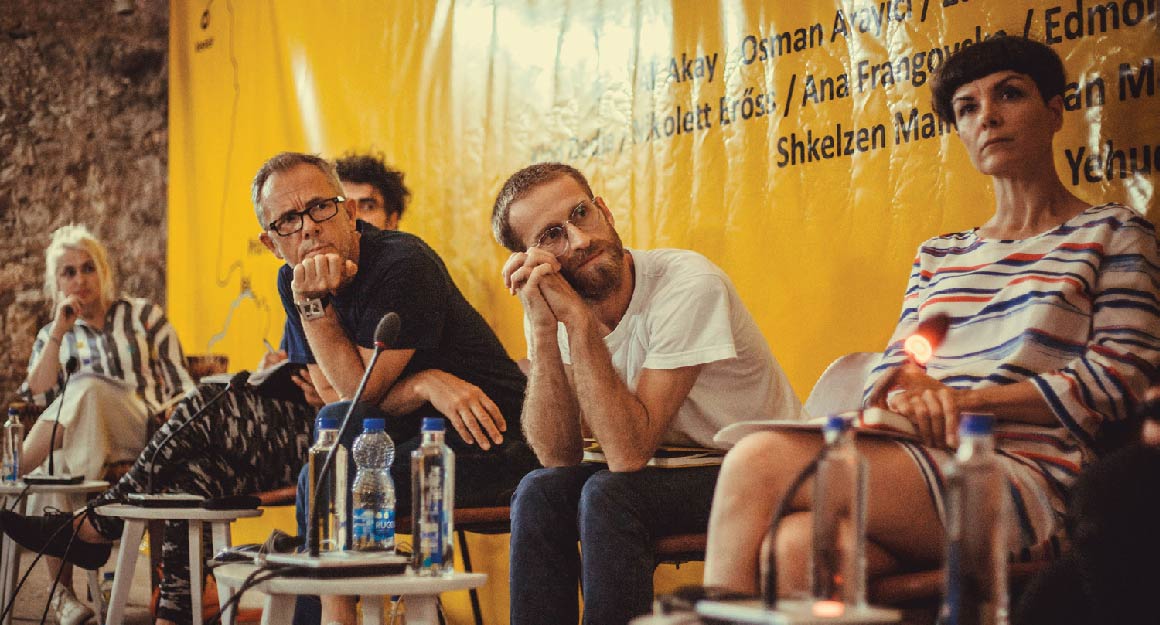



The international conference “Contemporary Past, Historic Future,” held on the 23rd and 24th of July in Prizren, brought together artists, educators, curators and potential partners, to reflect upon the importance of the Biennale of contemporary art within the region and beyond. Through four sessions held in the 16th century hammam, the panelists discussed initiatives to consolidate the partnerships between public and private art institutions and artists and informal groups. It also gave the possibility to share experiences and ideas, with the intention to create new opportunities for expanding and revitalising the artistic community. In the spirit of cooperation, Autostrada Biennale declared itself an innovative highway between the Istanbul, Venice and Prizren art Biennales. Feeling provoked to act, the Biennale questioned present-day struggles by illustrating the social, economic, political and aesthetic actualities in the region and beyond. The conference was exceptional, especially considering the Kosovar context. Firstly because it was organized one year before the first edition of the Biennale (of which the curator and theme had yet to be chosen) and secondly in undertaking the role of its title as regional highway, thereby using its geographic position as a crossroads between east and west.
It also did not neglect the grueling period of developmental processes after the war. It took into account that a new state is being formed; a small state, with a fragile economy and weak educational system and with restrictions on freedom of movement, but at the same time a state which is open to cultural and intellectual exchange, and one that wishes to revitalize the local and regional artistic community, and activate its cities and citizens. Autostrada Biennale utilized present-day local dynamics, the vitality of its characteristic youth, local knowledge, as well as regional and global partnerships to self-organize and position itself in the global cultural map. Through this, the international conference unified artists, curators, and heads of cultural institutions to discuss cultural issues through different perspectives. The first panel, titled “Art and Undefined Creative Territories” was moderated by Stefano Romano, and dealt with artistic relations and global artistic movements. Its panelists were: Iara Boubnova (Curator / Bulgaria), Sezgin Boynik (Theoretician / Finland), Sislej Xhafa (Artist / USA), Yehuda Safran (Art Critic / USA) and Miran Mohar (Artist / Slovenia)


